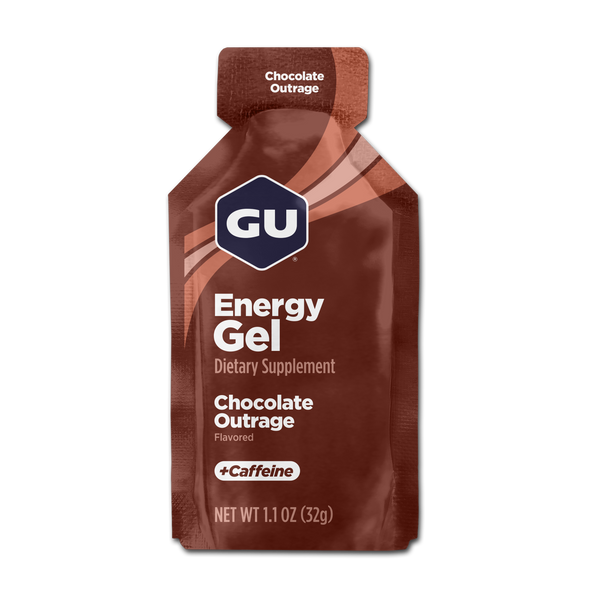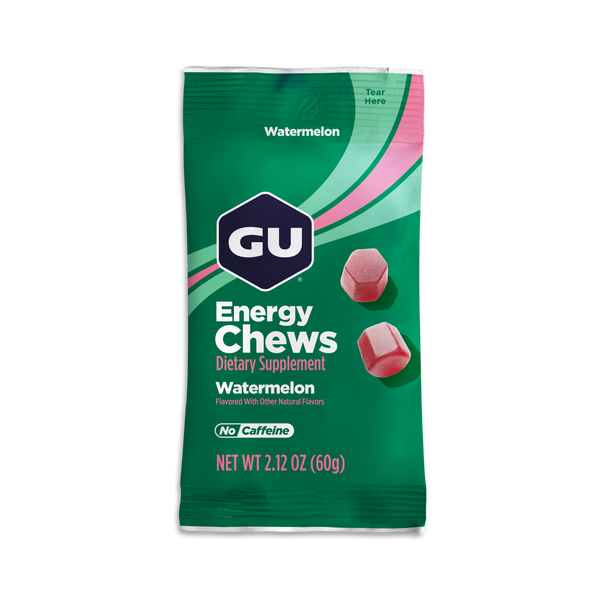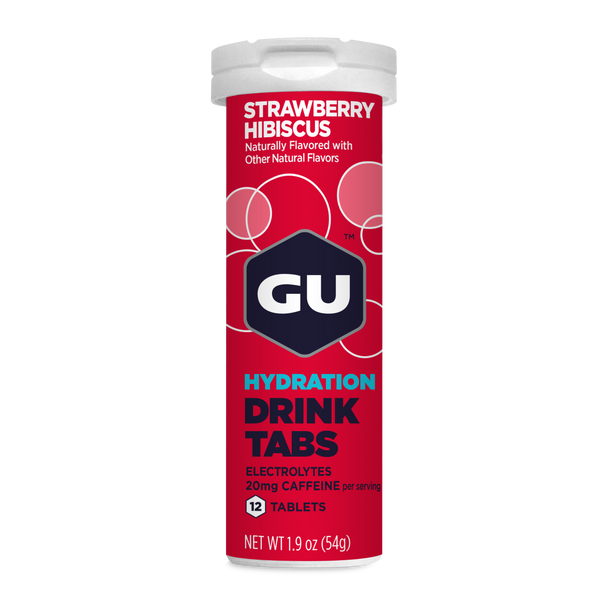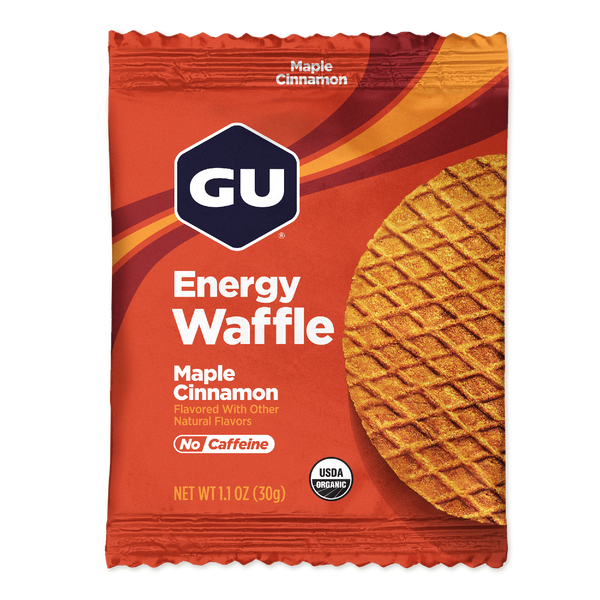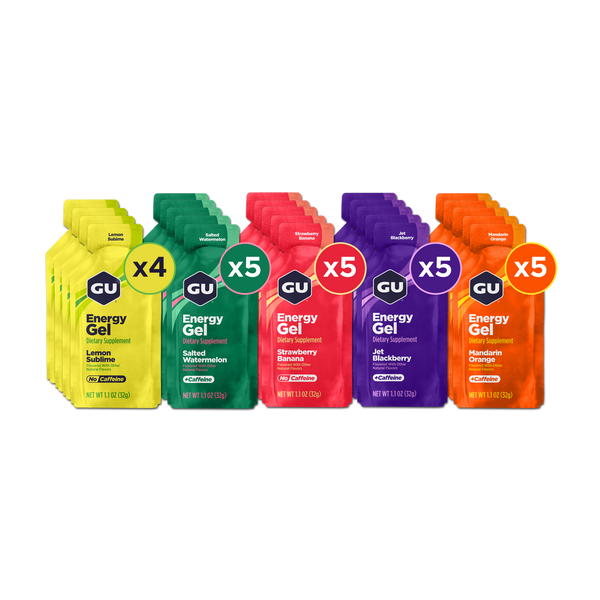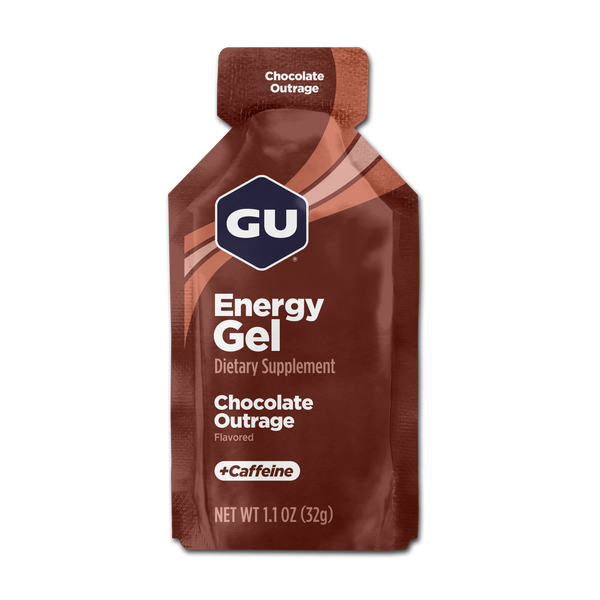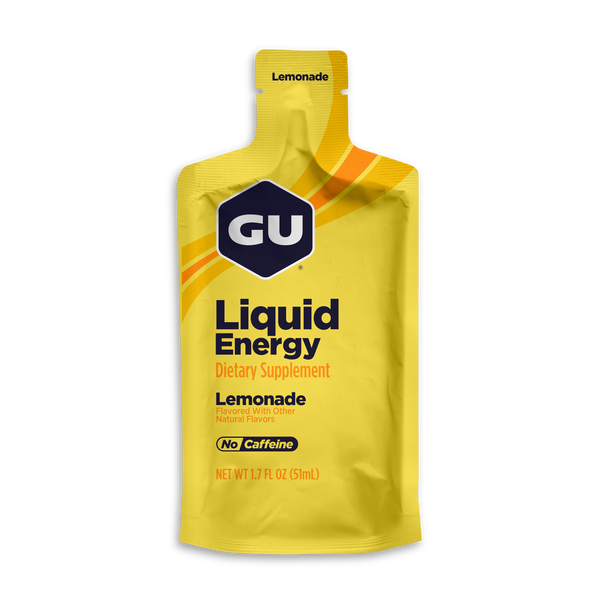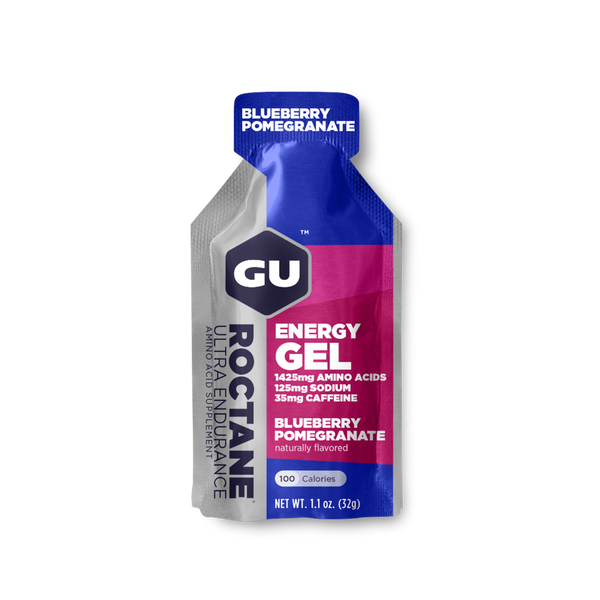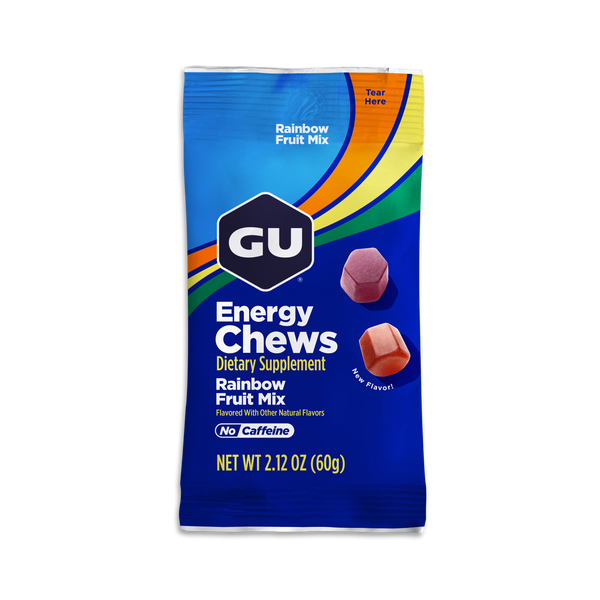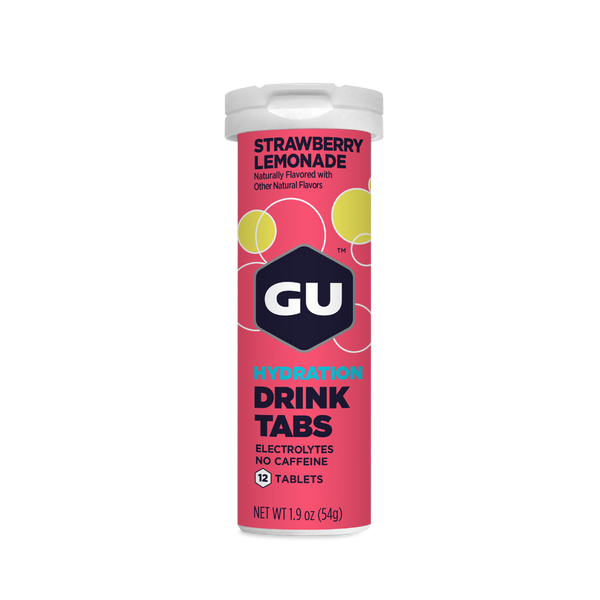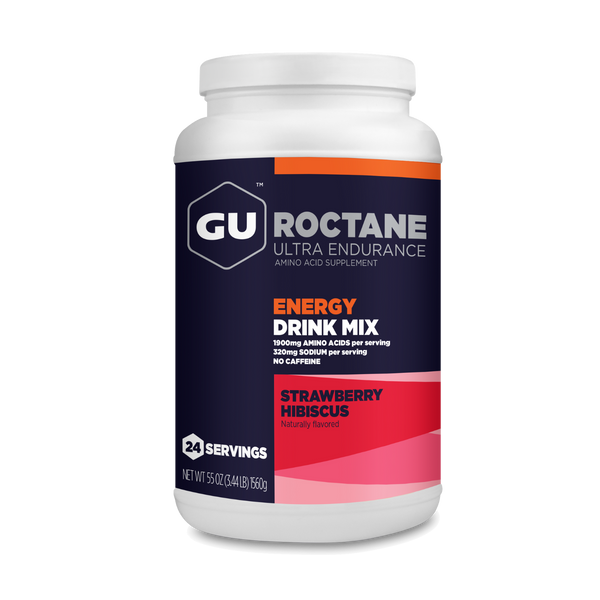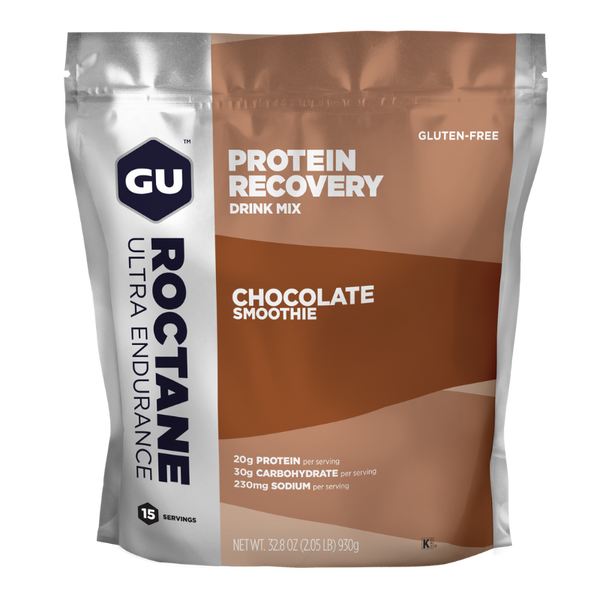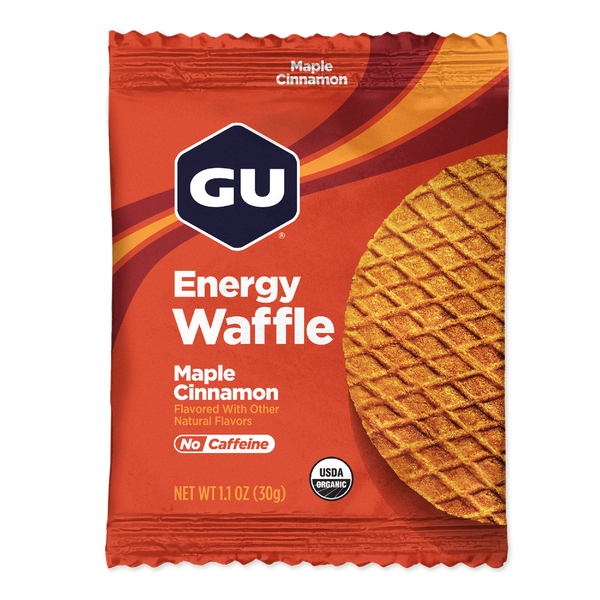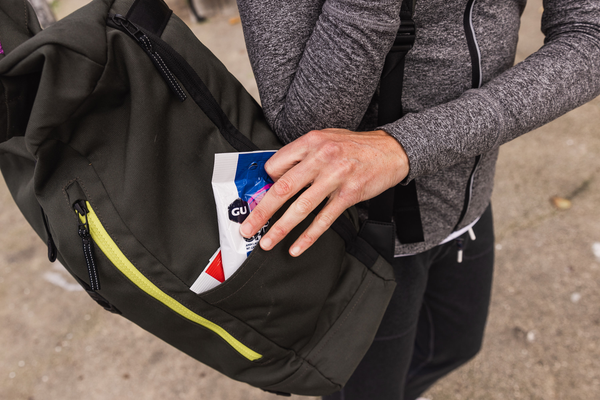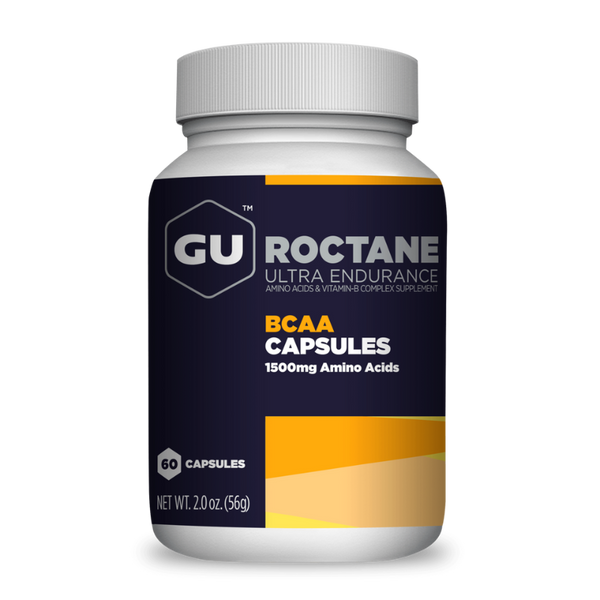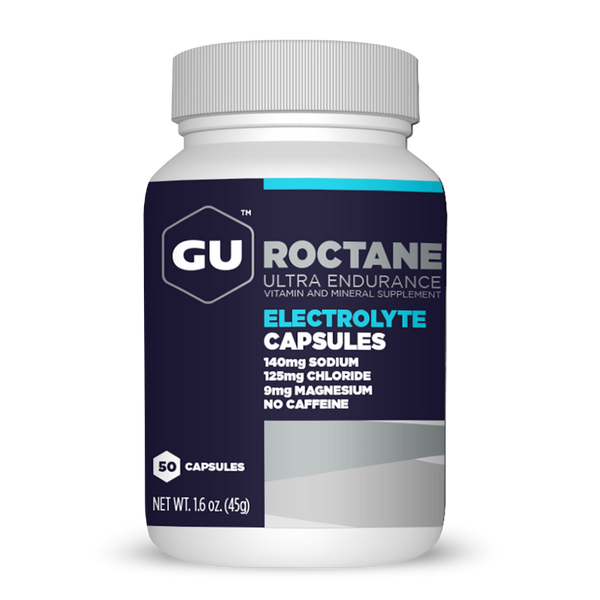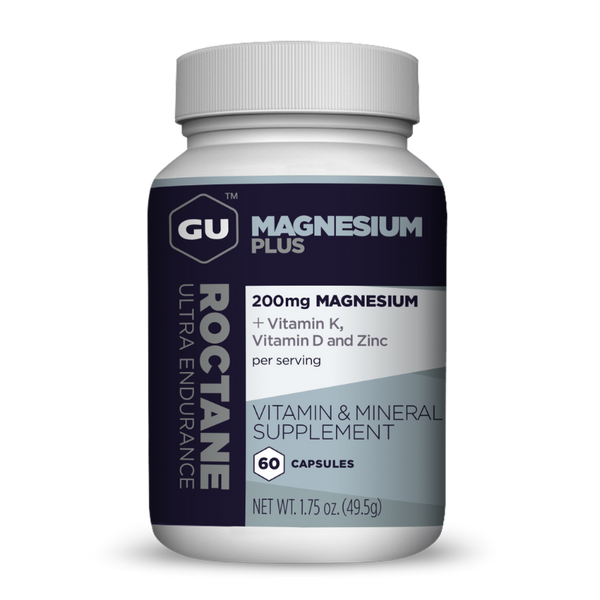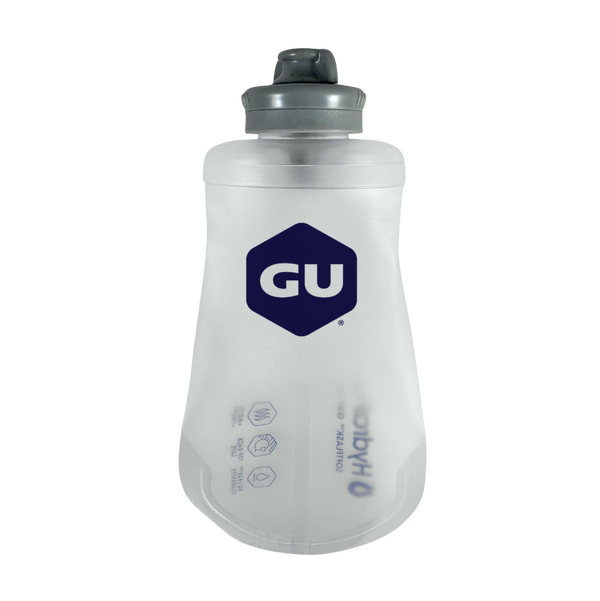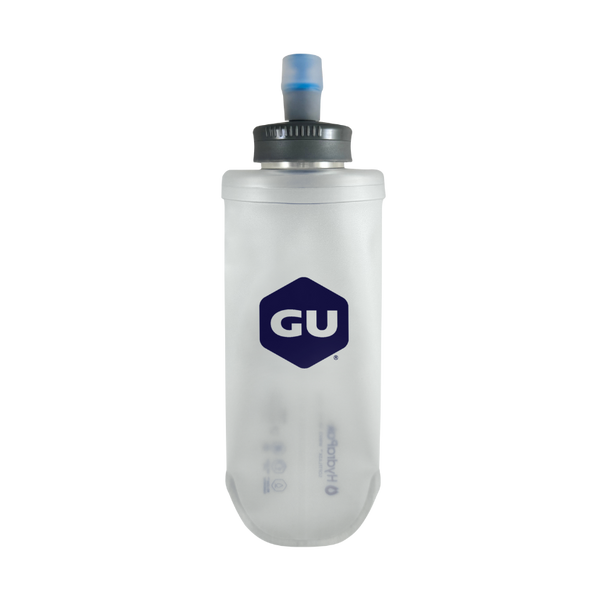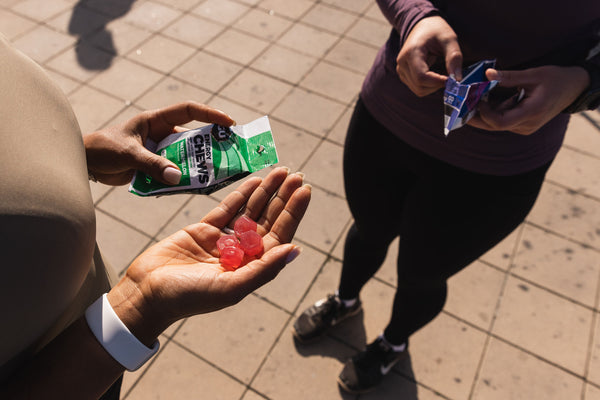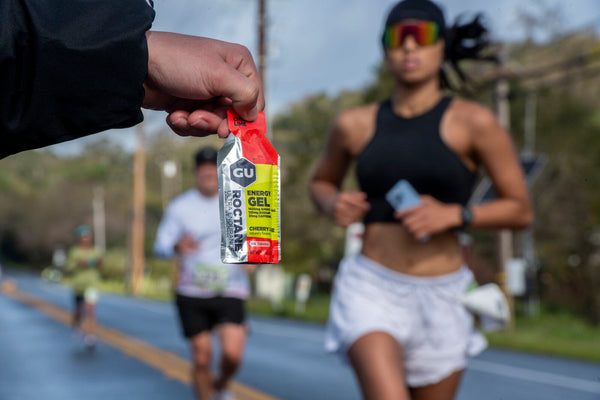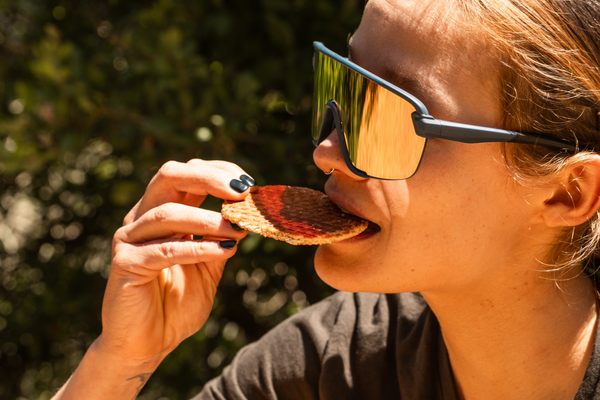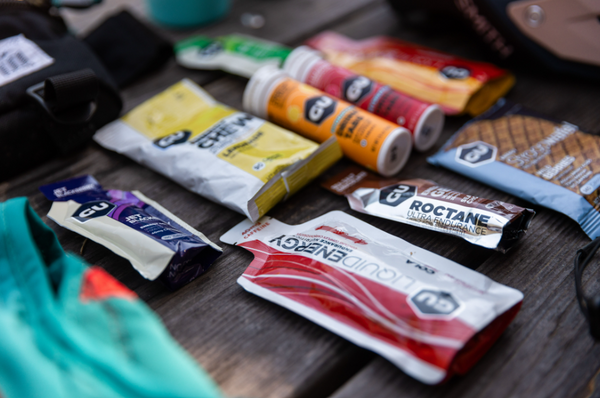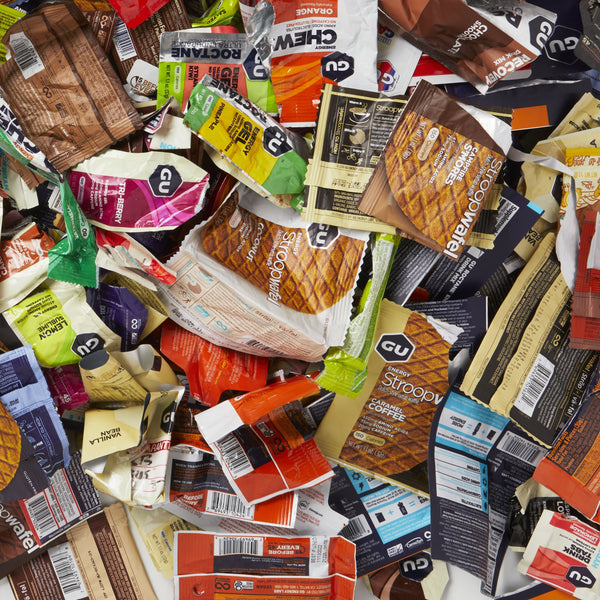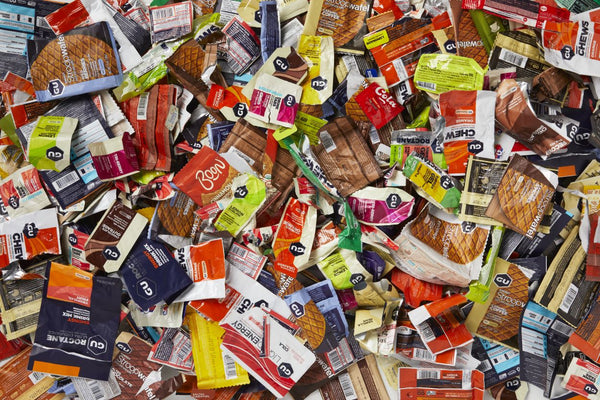What Are BCAAs?
Branched chain amino acids (BCAAs) – leucine, isoleucine, and valine – are the three essential amino acids found in GU and Roctane products, including gels and chews. Amino acids are the basic building blocks of proteins and BCAAs represent about a third of the amino acids that make up human muscle tissue.
BCAAs are unique because they can be broken down and used as an energy source within the muscle itself, without having to undergo metabolism in the liver like most other aminos. One of the BCAAs, leucine, is also a key regulator of muscle protein synthesis (MPS), the process whereby muscle tissue is repaired and rebuilt. While you still require the other essential amino acids to complete the process of MPS, you need leucine to get the party started.
Importantly, BCAAs are known not only for their role in promoting MPS, but also for delaying the onset of central fatigue during exercise and reducing exercise-induced muscle damage and muscle soreness, also known as delayed onset muscle soreness (DOMS).
Why Are There BCAAs in GU Products?
When it comes to exercise, we know that muscles matter. Your muscles allow you to move and do all the things you do every day. We also know that intense or unaccustomed exercise can result in muscle damage, a normal process of muscle tissue breakdown that occurs in order for the body to get stronger over time. And this process can be painful. Ever hit a workout too hard only to realize the next day that you need an assist to descend the stairs or even sit down? We’ve all been there. Keep in mind that DOMS can happen to beginners and experienced athletes alike. The good news? BCAAs can help!
What Does the Latest Science on BCAAs Say?
A new systematic review and meta-analysis (a study of existing research studies on the topic) was published in the journal Sports Medicine, updating what we know about BCAAs and their role in exercise-induced muscle soreness and muscle damage.
Quick Facts:
- Studies included: 18 randomized, controlled trials (2005-2018)
- Type of damaging exercise: 13 resistance and 5 endurance-based programs (think downhill running, high volume back squats, and drop jumps)
- Types of athletes: 331 healthy, active adult participants (12/18 studies with trained athletes)
- Supplementation: 3-30 grams BCAAs (0.08 – 0.54 g/kg bodyweight) daily, over a 1-28 day period
- What was measured: muscle damage biomarkers (measured in the blood) and ratings of muscle soreness over multiple time points beginning immediately after and up to 96 hours post-exercise
What Did They Find After Analyzing All the BCAA Research?
BCAA supplementation resulted in less muscle soreness (DOMS) beginning at 24 h extending all the way through 96 h post-exercise compared to control or placebo. Creatine kinase (a blood biomarker indicative of muscle damage) was also reduced immediately after, and 3 days following exercise.
Longer duration supplementation (7 days or more) made a bigger difference, and greater total BCAA intake (accumulated over time) had more of an impact on muscle soreness and muscle damage biomarkers. Currently, there is no consensus on the daily dose of BCAAs required to achieve these benefits, but consistency in taking BCAAs over time seems to be an important factor. Taking them before damaging exercise also appears to improve muscle soreness afterwards.
That’s Great, How Can I Get More BCAAs From My GU Products?
Our Roctane BCAA Capsules contain 1,500 mg (1.5 g) per 2 capsule serving, we suggest you take 2-4 capsules before or after hard training sessions (plyometrics, downhill running, high intensity workouts). Our Gels, Chews and Roctane Drink Mix all contain BCAAs as well (400+ mg per serving). You’re welcome.
When Should I Take BCAAs?
Take BCAA capsules (or use GU/Roctane products) before workouts to get the gains without the DOMS. Less muscle damage = less pain after damaging exercise. BCAAs for the win.

